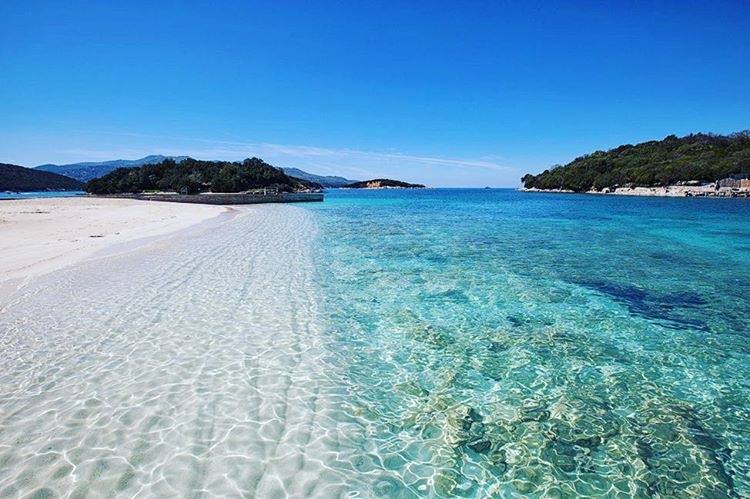
In a landmark development for environmental science and public health, an innovative solution has emerged to address the pervasive issue of global water pollution. This breakthrough, rooted in advanced scientific research and sustainable practices, promises to transform the way we tackle one of the most pressing challenges of our time.
According to the World Health Organization, unsafe drinking water, inadequate hygiene facilities, and insufficient sanitation contribute to approximately 88 percent of deaths from diarrheal diseases, with an alarming toll of 900 children under the age of five succumbing each day—equivalent to one child every two minutes. UN-Water, the United Nations’ inter-agency body for freshwater issues, identifies human settlements and industrial as well as agricultural activities as major sources of water pollution. Annually, inadequate water supply and sanitation claim around 3.5 million lives.
Access to clean water and sanitation stands as one of the United Nations Sustainable Development Goals, aiming for universal and equitable access to safe and affordable drinking water by 2030. This goal extends beyond improving human health; it also addresses gender inequality. In Africa, for example, women and girls are predominantly responsible for water collection, spending up to six hours each day in this labor. Providing equitable access to water could significantly enhance agricultural yields and alleviate hunger for millions.
Water is fundamental to life on Earth, essential not only for drinking, cooking, and sanitation but also for agriculture, energy production, and recreation. As the World Health Organization highlights, 2.2 billion people currently have limited access to safe drinking water, with projections suggesting that by 2025, half of the global population will reside in water-stressed regions.
Sahit Muja, Founder and CEO of Global Mining, Green Minerals, and Albanian Minerals, underscores the critical importance of water: “Water is an irreplaceable element central to life, industry, and agriculture. The high water content in the human body reflects its integral role in maintaining health. Investments in sustainable water management practices, infrastructure, and technologies are imperative for ensuring reliable access to clean water for all.”
Muja further asserts that the sustainability of human life is deeply intertwined with effective water resource management. He emphasizes the need for equitable access, protection of water quality, and the implementation of conservation measures as fundamental to building a sustainable future. Addressing water pollution and scarcity is paramount, with broad implications for health, ecosystems, agriculture, and global sustainability.
“Addressing these challenges requires a multifaceted approach involving international cooperation, innovative technologies, policy initiatives, and community engagement,” Muja explains. “My efforts to recognize water as a precious and finite resource align with the global imperative to secure a sustainable future for our planet.”
Drawing inspiration from nature, Muja highlights the principles observed in ecosystems that offer insights into sustainable environmental solutions. Nature’s optimization of processes and systems, such as natural filtration mechanisms provided by minerals, forests, and soil, offers valuable lessons for engineered systems aimed at water and air purification. By mimicking these natural processes, researchers can develop sustainable solutions for water treatment.
The Alpine region in Europe, renowned for its pristine waters, serves as a model of clean water sources. The Alps, spanning countries including Albania, Montenegro, Kosovo, Slovenia, Switzerland, Austria, France, Germany, and Italy, are characterized by their high mountain ranges and unspoiled aquatic ecosystems. Tropoje, Albania, distinguished by its untouched natural beauty and substantial reserves of magnesium olivine, is a key player in this narrative. The region’s clean air and water, coupled with its diverse minerals and significant olivine deposits, underscore its environmental importance.
Magnesium olivine, found in Tropoje, is lauded for its role in combating climate change and ocean acidification by capturing carbon dioxide and transforming it into valuable nutrients. Additionally, the natural filtration capabilities of olivine rock are integral to maintaining water quality.
Muja notes the progress made through collaborative efforts with international partners from the U.S., Japan, and China in studying the natural environment of Tropoje. This research has led to the development of olivine-based products aimed at improving water purification processes. “The use of green magnesium olivine in conjunction with advanced technologies and artificial intelligence represents a significant leap forward in water treatment. By leveraging these tools, we can enhance the precision and sustainability of water management strategies.”
Sahit Muja’s commitment to sustainable resource management and environmentally friendly technologies reflects a broader global shift towards responsible business practices. His contributions to innovative solutions for climate change and resource management position him as a leading figure in the pursuit of a sustainable future.
Muja’s dedication to integrating environmental responsibility with business success highlights his impactful role in addressing global challenges and advancing sustainability. His work exemplifies the potential of combining scientific innovation with environmental stewardship to tackle the critical issues of our time.





























